
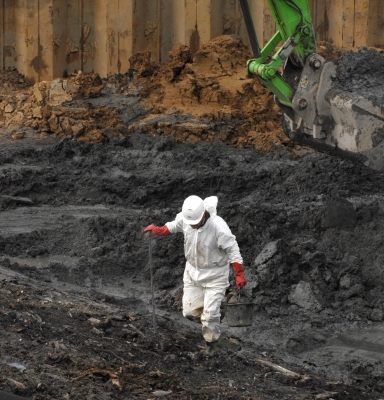
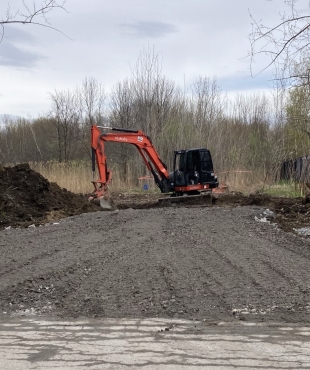
As an excavation company specializing in soil rehabilitation serving Montreal and all surrounding cities, S.A.P. EXCAVATION has been in the field for 20 years. Our experienced team is highly specialized in this type of work, which requires advanced expertise.
Our soil decontamination services are turnkey and tailored to meet your specific needs. We work closely with an environmental expert who provides detailed guidance throughout the process.
We hold an RBQ contractor license and comply with the regulations of the Ministry of the Environment regarding the excavation and transport of contaminated soils to an authorized treatment site.
Our company has completed numerous excavation projects for soil rehabilitation, with or without building demolition, underpinning, or concrete slab replacement.
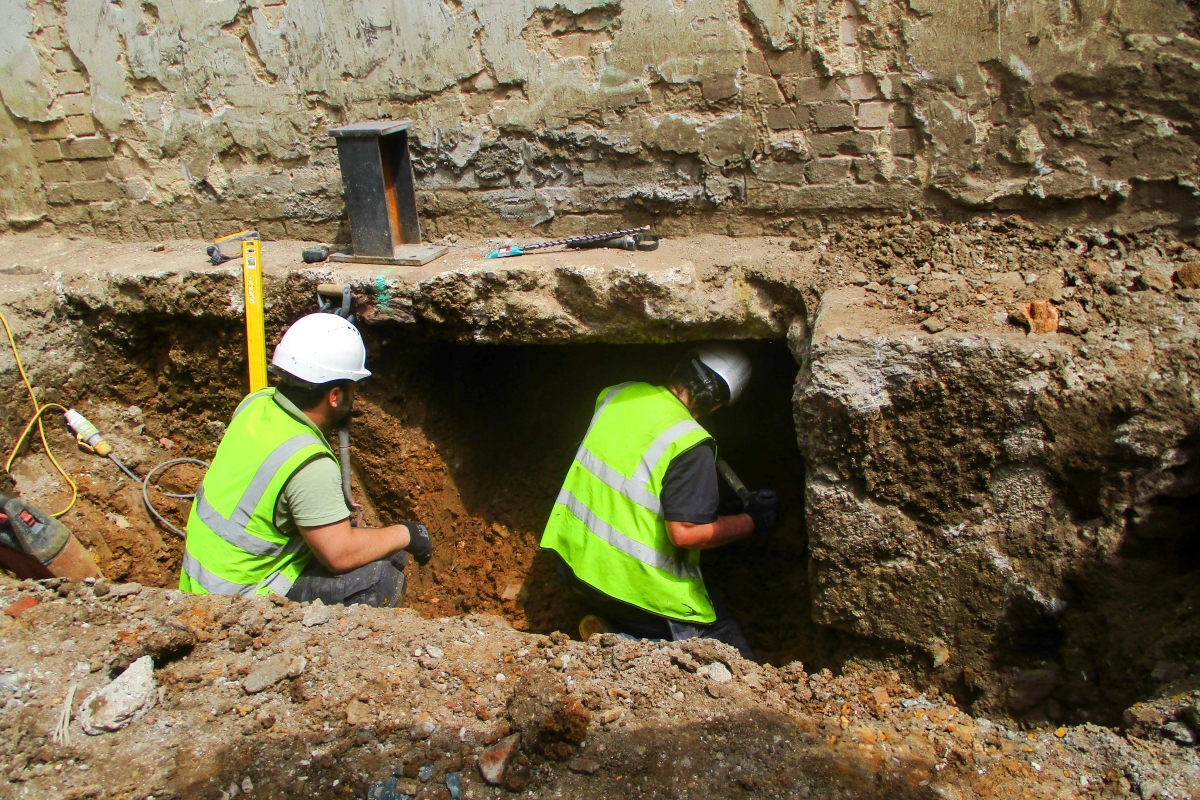
Soil rehabilitation is mandatory before buying or selling a potentially contaminated property.
It is also required during excavation, grading, construction, demolition, renovation, and building expansion.
The Ministry of the Environment may also mandate soil rehabilitation when an industrial activity ends or changes at a site or when there has been an accidental release of hazardous materials.
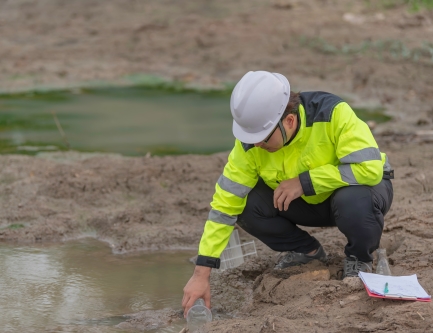
Some properties hold strong economic potential (whether for residential, commercial, or institutional construction), but may have been contaminated underground or on the surface by hazardous materials such as hydrocarbons or toxic substances.
Decontamination involves excavating to remove the contaminated soil or the contaminants themselves and disposing of them in accordance with environmental regulations by transporting them to an authorized treatment site.
Residential properties can also be contaminated by heating oil, which sometimes seeps under the foundation slab.
These decontamination efforts restore the property’s legal compliance and market value.
It’s important to note that soil rehabilitation may also involve the treatment of groundwater and surface water, which can be pumped and decontaminated.
In some cases, contaminated soil that remains within regulatory limits may be left in place.
An environmental engineer visits the site and gathers information (from neighbors or individuals familiar with the property) regarding its previous uses, any known spills, and other relevant details.
Before starting the work, the environmental expert analyzes soil samples taken from various locations and depths to determine the types and levels of contaminants present.
Groundwater samples are also collected and analyzed to assess their characteristics and determine if contamination is present.
If contaminant concentrations exceed regulatory thresholds, the environmental specialist will select the most effective soil remediation method.
The decontamination plan will include a list of risk management measures, land-use restrictions, and a cost estimate for the work.
The S.A.P. EXCAVATION team will carry out the work in accordance with the soil rehabilitation plan, any required building or infrastructure dismantling plan, the risk assessment, and the project schedule.
During the excavation of contaminated soil, our team will strictly follow the directives provided by the environmental expert.
We can also stockpile the soil on-site for treatment (in-situ decontamination). Soil testing will be conducted throughout the process.
If on-site treatment is not feasible, we will safely transport the contaminated soil by dump truck to an authorized treatment facility.
If a building must be partially or fully dismantled, materials that cannot be decontaminated on-site will also be transported to an authorized facility.
Once the backfilling with decontaminated or compliant new soil is complete, the environmental engineer will prepare a report.
A declaration of compliance will be issued and sent to the Ministry of the Environment.
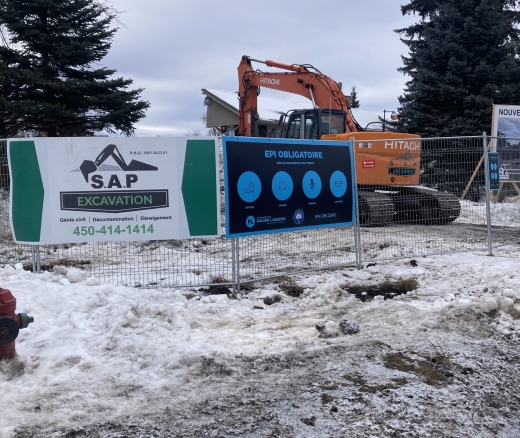
The excavation and handling of contaminated soil must be carried out in a way that prevents further contamination of the surrounding environment. This includes avoiding the mixing of contaminated soil with compliant on-site soil, structures, or materials.
It is also essential to ensure that contaminated soils or materials do not migrate to neighboring properties during the work. For example, soils that release high concentrations of volatile organic compounds into the air cannot be excavated without taking proper precautions.
The same applies when soil contains asbestos after the demolition of a building where it was present. Asbestos fibers must not be released into the air during demolition or transportation.
In the truck, contaminated materials must be placed in a sealed container labeled as follows: "Materials Containing Asbestos – Toxic by Inhalation – Keep Container Tightly Closed – Do Not Inhale Dust."


Get in touch with the S.A.P. EXCAVATION team today at (450) 414-1414 or by email at info@sapexcavation.com to discuss your project.
We will be happy to provide more information about our soil rehabilitation services in Montreal or any other city in the region.
Free Estimate Contact Us